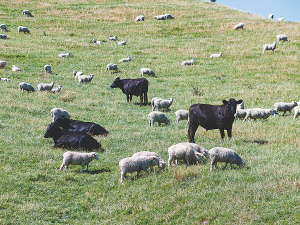Ministry for the Environment to sponsor Ballance Farm Environment Award
The Ministry for the Environment is joining as a national award sponsor in the Ballance Farm Environment Awards (BFEA from next year).
 The Ministry for the Environment's 2021 Greenhouse Gas Inventory says that for the year 2019, agriculture was New Zealand's biggest emitting sector.
The Ministry for the Environment's 2021 Greenhouse Gas Inventory says that for the year 2019, agriculture was New Zealand's biggest emitting sector.
The Ministry for the Environment’s (MfE) 2021 Greenhouse Gas Inventory revealed that for the year 2019, agriculture was among the two largest contributors to New Zealand’s gross Greenhouse Gas (GHG) emissions.
The report, which documents all of New Zealand’s human-generated greenhouse gas emissions and removals since 1990, shows that New Zealand’s gross emissions were 82.3 million tonnes of carbon dioxide equivalent (Mt CO2-e) in 2019.
The report states that emissions for the agriculture sector made up 48% of New Zealand’s gross emissions.
It also states that between 1990 and 2019, gross emissions increased by 26%, largely down to increases in methane from dairy cattle digestive systems and carbon dioxide from road transport.
On the whole, gross emissions in 2019 comprised 46% carbon dioxide, 42% methane, 10% nitrous oxide and 2% fluorinated gases.
The Greenhouse Gas Inventory is collated as one of New Zealand’s mandatory reporting obligations under the United Nations Framework Convention on Climate Change and the Kyoto Protocol.
It informs MfE policy recommendations on climate change and includes data that helps monitor New Zealand’s progress towards emissions reduction targets.
Legal controls on the movement of fruits and vegetables are now in place in Auckland’s Mt Roskill suburb, says Biosecurity New Zealand Commissioner North Mike Inglis.
Arable growers worried that some weeds in their crops may have developed herbicide resistance can now get the suspected plants tested for free.
Fruit growers and exporters are worried following the discovery of a male Queensland fruit fly in Auckland this week.
Dairy prices have jumped in the overnight Global Dairy Trade (GDT) auction, breaking a five-month negative streak.
Alliance Group chief executive Willie Wiese is leaving the company after three years in the role.
A booklet produced in 2025 by the Rotoiti 15 trust, Department of Conservation and Scion – now part of the Bioeconomy Science Institute – aims to help people identify insect pests and diseases.